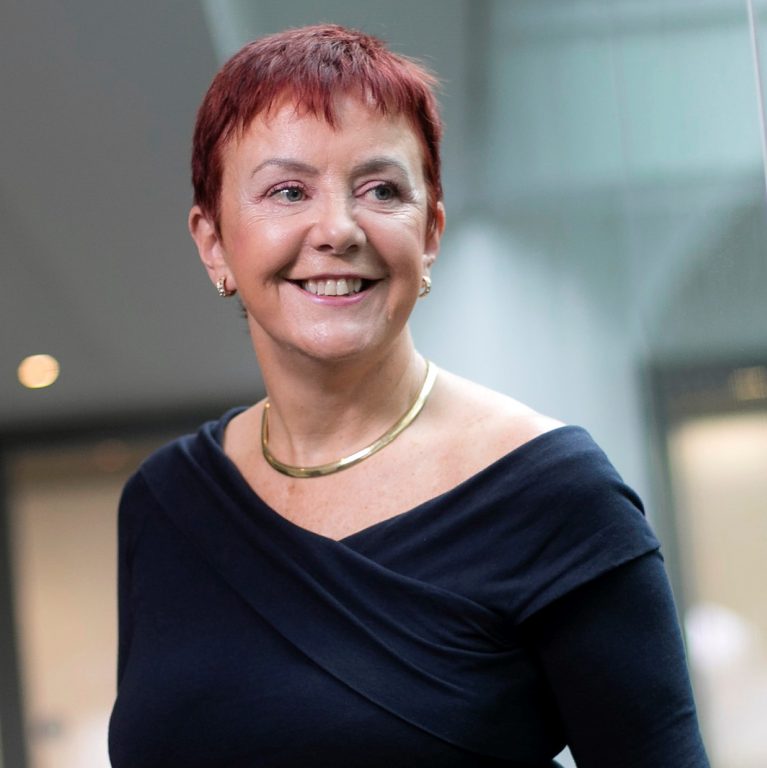Creating a gender inclusive workplace at Salesforce
Senior director of employee success Terri Moloney shares all with UNLEASH.
Why You Should Care
LGBTQ+ individuals still face unique challenges at work.
But some employers are leading the way and building inclusive workplaces.
Salesforce is one example, and it has just extended its gender inclusive benefits.
COVID-19 has affected everyone across the world, but it has not impacted everyone equally.
Women and LGBTQ+ individuals have been hit especially hard because they are better represented in the sectors that were worst affected by the pandemic, like retail and hospitality.
According to the Human Rights Campaign Foundation, 40% of the individuals where LGBTQ+ employees are employed face more exposure to COVID-19 infection and economic instability. As a result, 30% had reduced hours and 12% became unemployed during the pandemic.
In light of this, many companies are even more laser focused on ensuring the future of work is more inclusive than the past, particularly for LGBTQ+ individuals.
One such company is cloud software giant Salesforce.
While its employee demographics are pretty consistent with other tech giants (36.1% women and 3.2% LGBTQ+ employees in the US), the company is committed to ensuring 50% of its US workforce is made up of under-represented groups, including women and LGBTQ+ individuals by 2023.
Creating a culture of inclusion
To attract more women, LGBTQ+ individuals and other underrepresented groups into Salesforce, the company is focused on having a culture of inclusion.
Therefore, it is no surprise that workplace equality is a core value for Salesforce, alongside trust, customer success and innovation.

Terri Moloney, senior director of employee success at Salesforce.
“We are committed to building a workplace that looks like society” by creating “an inclusive culture where everyone feels seen, valued and heard”, Salesforce’s senior director of employee success Terri Moloney tells UNLEASH.
But what does Salesforce’s inclusive culture look like?
Not only does it have a dedicated Chief Equality Officer – Lori Castillo Martinez in the interim – it provides all managers with training on bias awareness and how to fairly approach promotion.
Salesforce also has 12 employee resource groups for underrepresented communities. Examples include Abilityforce for those (and employers with family members) who have visible and invisible disabilities, Genforce that is tackling age discrimination at work and Outforce, its LGBTQ+ group.
Salesforce’s new gender inclusive benefits
Moloney tells UNLEASH it was in consultation with Outforce and listening to the concerns of Salesforce’s entire LGBTQ+ community that pushed the cloud software giant to supercharge its benefits offerings for global transgender and non-binary employees.
The result is its new gender inclusive benefits, which include reimbursement for gender affirmation medical procedures and treatments, four weeks paid leave for employees who need time to recover after procedures, and up to $1,000 to help employees navigate legally changing their gender.
Salesforce will also offer up to $500 in wardrobe reimbursement for employees going through gender assignment, as well as counseling for employees and their families through every step of their gender confirmation.
The final element is extending Salesforce’s employee advocacy program Warmline to include LGBTQ+ and provide a safe space for them to confidentially discuss problems around belonging, equity and their future career. Warmline was created in 2020 because Salesforce recognizes “underrepresented employees experience the workplace differently”.
The new benefits “build on surgery reimbursements and resources we’ve offered in the US” and “extend critical financial and emotional support to all global employees”.
The aim of doing this is to “help employees affirm their gender and look and feel their best”, explains Moloney.
“We want all employees to feel safe bringing their true, authentic selves to work every day and we believe these benefits are an important step on that journey”.
Tackling LGBTQ+ stigma at work
Everyone, no matter their gender or sexual orientation, being able to bring their true selves to work isn’t just a nice thing to do, “it is also the smart thing”, Moloney explains. “It empowers us to innovate, build deeper connections with our customers and ultimately become a better company.”
Remember, happy, valued employees are the most productive, which is good for business.
While things are improving, LGBTQ+ individuals – and particularly trans and non-binary employees – face unique challenges to being their true selves at work.
They often face hostility in applying for jobs and at work. Research by the Harvard T H Chan School of Public Health found that 20% of LGBTQ+ Americans have experienced discrimination when applying for jobs. This rises to 32% for LGBTQ+ people of color.
At work, they are often subject to so-called ‘jokes’ about their sexual orientation or gender identity. Trans individuals are also often subjected to repeated intentional misgendering and being asked inappropriate, personal questions.
This leads to a situation where 46% of LGBTQ+ employees in the US remain closeted at work, and 59% feel it would be unprofessional to discuss their sexual orientation or gender identity at work.
Hiding their true selves at work is exhausting, and can often lead to high turnover of LGBTQ+ workers. Whereas inclusive work cultures help to retain LGBTQ+ workers, according to Human Rights Watch.
Therefore, in the context of the pandemic and associated ‘Great Resignation’, it is high time that employers both big and small follow the lead of the likes of Salesforce, JLL and BP into being laser focused on making the future of work better and more inclusive, particularly for LGBTQ+ individuals.
Moloney concludes: “As the world around us calls for more empathy and accountability, we believe that as a business, we have a role to play in creating a workplace that reflects the best of our society”.
Sign up to the UNLEASH Newsletter
Get the Editor’s picks of the week delivered straight to your inbox!

Chief Reporter
Allie is an award-winning business journalist and can be reached at alexandra@unleash.ai.
